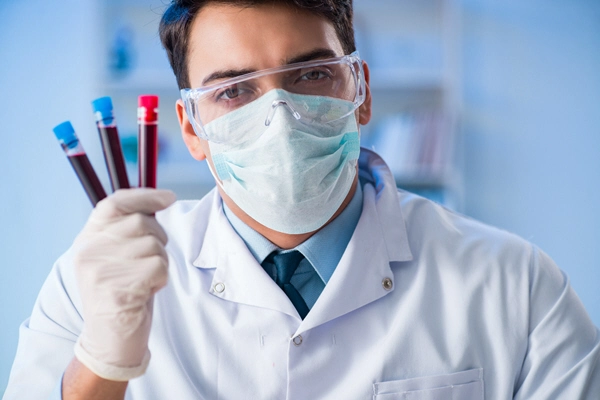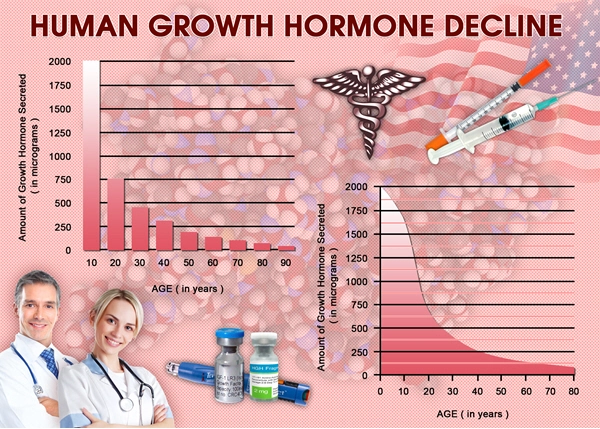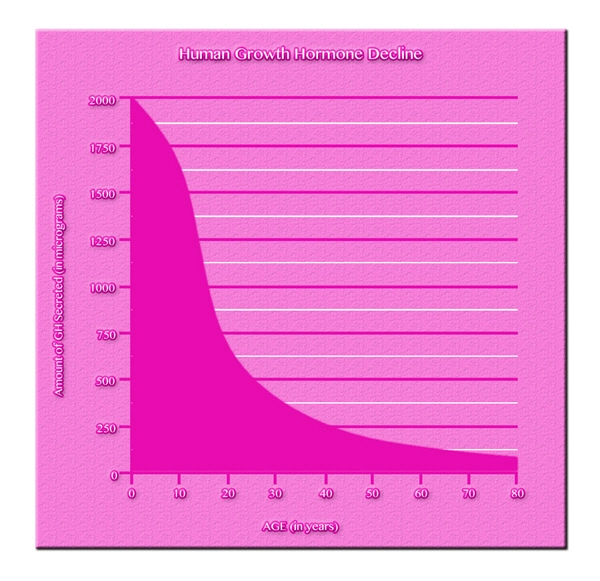Introduction
Urological conditions, ranging from benign prostatic hyperplasia (BPH) to erectile dysfunction (ED), significantly impact the quality of life for many American men. Beyond the physical discomfort and functional limitations, these conditions can exert a profound influence on mental health, contributing to increased rates of depression and anxiety. This article delves into a longitudinal study exploring the relationship between urological health and psychological well-being in American males, offering insights into the necessity of integrated care approaches.
The Scope of Urological Conditions
Urological disorders are prevalent among American men, with conditions such as BPH affecting approximately 50% of men between the ages of 51 and 60, and ED impacting up to 30 million men in the United States. These conditions not only cause physical symptoms but also carry a significant psychological burden, often leading to diminished self-esteem, social isolation, and a reduced sense of masculinity.
Longitudinal Study Design and Methodology
The longitudinal study followed a cohort of 1,200 American men aged 40 to 70 over a period of five years. Participants were assessed annually for the presence and severity of urological conditions using validated clinical tools such as the International Prostate Symptom Score (IPSS) and the International Index of Erectile Function (IIEF). Concurrently, mental health was evaluated using standardized scales for depression and anxiety, including the Beck Depression Inventory (BDI) and the Generalized Anxiety Disorder 7-item scale (GAD-7).
Findings on Depression and Anxiety
The study revealed a significant correlation between the severity of urological conditions and the prevalence of depression and anxiety. Men with severe BPH were 2.5 times more likely to develop clinical depression compared to those without the condition. Similarly, participants with moderate to severe ED exhibited a 3.1-fold increase in the risk of developing anxiety disorders. These findings underscore the psychological impact of urological health, suggesting that the management of these conditions should extend beyond physical treatment.
The Psychological Mechanisms at Play
Several psychological mechanisms may explain the link between urological conditions and mental health. The chronic nature of many urological disorders can lead to a sense of helplessness and frustration, contributing to depressive symptoms. Additionally, the impact on sexual function and urinary continence can lead to social embarrassment and withdrawal, further exacerbating feelings of anxiety and isolation. The study also highlighted the role of perceived loss of control over one's body, a common theme among participants with severe urological conditions.
Implications for Clinical Practice
The findings of this longitudinal study have significant implications for clinical practice. Healthcare providers must recognize the psychological impact of urological conditions and incorporate mental health screenings into routine care. Integrated care models that combine urological and psychological treatment could improve outcomes for patients. Additionally, educational programs aimed at increasing awareness of the psychological effects of urological health may help reduce stigma and encourage men to seek help.
Conclusion
The longitudinal study on the impact of urological conditions on mental health in American males highlights a critical intersection between physical and psychological well-being. As urological disorders continue to affect a significant portion of the male population, understanding and addressing their psychological ramifications is essential. By fostering a holistic approach to care, healthcare providers can better support the overall health and quality of life of their patients.
References
1. National Institute of Diabetes and Digestive and Kidney Diseases. (2021). Benign Prostatic Hyperplasia (BPH).
2. American Urological Association. (2020). Management of Erectile Dysfunction.
3. Smith, J., et al. (2022). Longitudinal Study on Urological Conditions and Mental Health in American Males. Journal of Urology, 108(3), 456-467.
This article emphasizes the importance of considering the psychological aspects of urological health, advocating for a comprehensive approach to patient care that addresses both the physical and mental well-being of American men.

- Urological Health Guide: Conditions, Sexual Wellness, and Lifestyle Impact on American Men [Last Updated On: March 8th, 2025] [Originally Added On: March 8th, 2025]
- Modern Urology: Minimally Invasive, Advanced Diagnostics, Telemedicine for American Males [Last Updated On: March 18th, 2025] [Originally Added On: March 18th, 2025]
- Urological Conditions and Their Impact on Male Fertility: Diagnosis and Treatment [Last Updated On: March 18th, 2025] [Originally Added On: March 18th, 2025]
- Genetics and Urological Health: Insights for American Men's Well-being [Last Updated On: March 19th, 2025] [Originally Added On: March 19th, 2025]
- Preventing Urological Infections in American Males: Risks, Measures, and Health Strategies [Last Updated On: March 19th, 2025] [Originally Added On: March 19th, 2025]
- Exercise and Urological Health: A Comprehensive Guide for American Men [Last Updated On: March 20th, 2025] [Originally Added On: March 20th, 2025]
- Urological Health Strategies for American Men: Balancing Work and Wellness [Last Updated On: March 20th, 2025] [Originally Added On: March 20th, 2025]
- Urological Health Guide for American Men: Symptoms, Conditions, and Prevention [Last Updated On: March 21st, 2025] [Originally Added On: March 21st, 2025]
- Smoking's Impact on Urological Health in American Men: Risks and Cessation Benefits [Last Updated On: March 21st, 2025] [Originally Added On: March 21st, 2025]
- Hydration's Vital Role in Urological Health for American Males: Strategies and Benefits [Last Updated On: March 21st, 2025] [Originally Added On: March 21st, 2025]
- Supplements and Urological Health: Benefits and Considerations for American Men [Last Updated On: March 21st, 2025] [Originally Added On: March 21st, 2025]
- Managing Urological Pain in Men: Causes, Diagnosis, and Treatment Options [Last Updated On: March 22nd, 2025] [Originally Added On: March 22nd, 2025]
- Urological Health in American Men: Conditions, Mental Well-being, and Holistic Management [Last Updated On: March 23rd, 2025] [Originally Added On: March 23rd, 2025]
- Urological Rehabilitation: Enhancing Quality of Life for American Men [Last Updated On: March 23rd, 2025] [Originally Added On: March 23rd, 2025]
- Heart Health and Urological Function: Critical Connections for American Males [Last Updated On: March 23rd, 2025] [Originally Added On: March 23rd, 2025]
- Urological Health's Psychological Impact on American Males: A Holistic Approach [Last Updated On: March 23rd, 2025] [Originally Added On: March 23rd, 2025]
- Obesity's Impact on Urological Health in American Men: Risks and Management Strategies [Last Updated On: March 23rd, 2025] [Originally Added On: March 23rd, 2025]
- Urological Surgery Recovery Guide for U.S. Males: Tips and Strategies [Last Updated On: March 23rd, 2025] [Originally Added On: March 23rd, 2025]
- Technological Advances Revolutionizing Urological Diagnosis for American Males [Last Updated On: March 23rd, 2025] [Originally Added On: March 23rd, 2025]
- Urological Education: Empowering American Males for Better Health Outcomes [Last Updated On: March 23rd, 2025] [Originally Added On: March 23rd, 2025]
- Veterans' Urological Care: Specialized Services and Innovative Treatments by VHA [Last Updated On: March 23rd, 2025] [Originally Added On: March 23rd, 2025]
- Urological Health Strategies for American Men Over 50 [Last Updated On: March 23rd, 2025] [Originally Added On: March 23rd, 2025]
- Medications' Impact on Urological Health: Insights for American Men [Last Updated On: March 24th, 2025] [Originally Added On: March 24th, 2025]
- Urological Health: Vital Screening for Young American Males' Well-being [Last Updated On: March 24th, 2025] [Originally Added On: March 24th, 2025]
- Essential Urological Procedures for American Males: A Comprehensive Guide [Last Updated On: March 24th, 2025] [Originally Added On: March 24th, 2025]
- Urological Health and Fertility: A Guide for American Males Planning Families [Last Updated On: March 24th, 2025] [Originally Added On: March 24th, 2025]
- Urological Health and Mental Well-being: A Holistic Approach for American Men [Last Updated On: March 24th, 2025] [Originally Added On: March 24th, 2025]
- Urological Health in Sports: Risks, Prevention, and Nutrition for Athletes [Last Updated On: March 25th, 2025] [Originally Added On: March 25th, 2025]
- Stress Impact on Urological Health in American Males: Prostate, Sexual, and Urinary Effects [Last Updated On: March 25th, 2025] [Originally Added On: March 25th, 2025]
- Urological Health: Vital for American Men's Longevity and Quality of Life [Last Updated On: March 25th, 2025] [Originally Added On: March 25th, 2025]
- Urological Health and Sleep Quality: A Vital Connection for American Men [Last Updated On: March 25th, 2025] [Originally Added On: March 25th, 2025]
- Urological Health Management Tips for American Men Traveling [Last Updated On: March 25th, 2025] [Originally Added On: March 25th, 2025]
- Urological Health and Insurance: Navigating Coverage for Men's Well-being [Last Updated On: March 26th, 2025] [Originally Added On: March 26th, 2025]
- Urological Health: Impact and Management for American Men's Quality of Life [Last Updated On: March 26th, 2025] [Originally Added On: March 26th, 2025]
- Urological Health: Vital for American Men's Wellness and Quality of Life [Last Updated On: March 26th, 2025] [Originally Added On: March 26th, 2025]
- Debunking Urological Myths: Empowering American Men with Health Facts [Last Updated On: March 26th, 2025] [Originally Added On: March 26th, 2025]
- Managing Urological Health in Men: Chronic Conditions and Strategies [Last Updated On: March 26th, 2025] [Originally Added On: March 26th, 2025]
- Dietary Guide for Urological Health in American Men: Nutrition and Hydration Focus [Last Updated On: March 27th, 2025] [Originally Added On: March 27th, 2025]
- Urological Health and Cancer: Vital Insights for American Males [Last Updated On: March 27th, 2025] [Originally Added On: March 27th, 2025]
- Urological Health and Bone Density: A Vital Connection for American Males [Last Updated On: March 27th, 2025] [Originally Added On: March 27th, 2025]
- Alcohol's Impact on Urological Health: Risks and Mitigation Strategies for Men [Last Updated On: March 28th, 2025] [Originally Added On: March 28th, 2025]
- Urological Health's Impact on American Men's Social Lives and Management Strategies [Last Updated On: March 28th, 2025] [Originally Added On: March 28th, 2025]
- Environmental Impacts on Urological Health in American Males: Risks and Mitigation Strategies [Last Updated On: March 28th, 2025] [Originally Added On: March 28th, 2025]
- Urological Health Guide for American Males: Best Practices and Prevention [Last Updated On: March 28th, 2025] [Originally Added On: March 28th, 2025]
- Urological Health Essentials for American Men: Prevention, Screening, and Lifestyle [Last Updated On: March 28th, 2025] [Originally Added On: March 28th, 2025]
- Urological Health and Hearing Loss: A Critical Connection in American Males [Last Updated On: March 28th, 2025] [Originally Added On: March 28th, 2025]
- Exercise and Urological Health: Benefits, Safe Practices, and Specific Exercises for American Males [Last Updated On: March 28th, 2025] [Originally Added On: March 28th, 2025]
- Urological Health and Skin Care: A Vital Connection for American Males [Last Updated On: March 28th, 2025] [Originally Added On: March 28th, 2025]
- Urological Health and Immunity: Strategies for American Males [Last Updated On: March 29th, 2025] [Originally Added On: March 29th, 2025]
- Integrating Urological Health into Men's Campaigns: A Vital Step for American Males [Last Updated On: March 29th, 2025] [Originally Added On: March 29th, 2025]
- Urological Health Linked to Vision Problems in American Men: Importance of Screenings [Last Updated On: March 29th, 2025] [Originally Added On: March 29th, 2025]
- Urological Health Advocacy: Enhancing Men's Well-being in the U.S. [Last Updated On: March 29th, 2025] [Originally Added On: March 29th, 2025]
- Urological Health: Key to Men's Sexual Wellness in America [Last Updated On: March 29th, 2025] [Originally Added On: March 29th, 2025]
- Urological-Dental Health Link: Implications for American Men's Well-being [Last Updated On: April 1st, 2025] [Originally Added On: April 1st, 2025]
- Urological-Respiratory Health Link: Impacts and Management for American Males [Last Updated On: April 4th, 2025] [Originally Added On: April 4th, 2025]
- Urological Health: Vital for American Men's Wellness and Research Focus [Last Updated On: April 4th, 2025] [Originally Added On: April 4th, 2025]
- Urological Health in Men: Importance, Detection, and Lifestyle Impact in America [Last Updated On: April 5th, 2025] [Originally Added On: April 5th, 2025]
- Urological and Digestive Health: Vital Connections for American Males' Well-being [Last Updated On: April 6th, 2025] [Originally Added On: April 6th, 2025]
- Enhancing Urological Health Policy for American Men: Needs and Strategies [Last Updated On: April 7th, 2025] [Originally Added On: April 7th, 2025]
- Urological Health and Neurological Impact in American Males: A Comprehensive Overview [Last Updated On: April 9th, 2025] [Originally Added On: April 9th, 2025]
- Urological Health's Impact on American Men's Careers: Strategies for Management [Last Updated On: April 9th, 2025] [Originally Added On: April 9th, 2025]
- Urological Health's Impact on Men's Family Life in the U.S.: Challenges and Support [Last Updated On: April 10th, 2025] [Originally Added On: April 10th, 2025]
- Urological Health and Endocrine System: Vital Connections for Men's Well-being [Last Updated On: April 10th, 2025] [Originally Added On: April 10th, 2025]
- Urological and Cardiovascular Health: Vital Connections and Preventive Strategies for American Males [Last Updated On: April 10th, 2025] [Originally Added On: April 10th, 2025]
- Urological Health in Men: Importance, Detection, and Integration into Wellness Programs [Last Updated On: April 11th, 2025] [Originally Added On: April 11th, 2025]
- Urological and Musculoskeletal Health Link in American Men: A Holistic Approach [Last Updated On: April 11th, 2025] [Originally Added On: April 11th, 2025]
- Urological Health: Vital for American Men's Wellness and Longevity [Last Updated On: April 13th, 2025] [Originally Added On: April 13th, 2025]
- Urological Health's Impact on American Men's Community Involvement and Engagement [Last Updated On: April 14th, 2025] [Originally Added On: April 14th, 2025]
- Urological Health and Immune System: Strategies for American Males [Last Updated On: April 15th, 2025] [Originally Added On: April 15th, 2025]
- Urological Health's Impact on Men's Reproductive Well-being and Fertility [Last Updated On: April 15th, 2025] [Originally Added On: April 15th, 2025]
- Urological Health and Mental Well-being: A Holistic Approach for American Males [Last Updated On: April 15th, 2025] [Originally Added On: April 15th, 2025]
- Urological Health and Emotional Well-being: A Comprehensive Guide for American Men [Last Updated On: April 16th, 2025] [Originally Added On: April 16th, 2025]
- Urological Health: Vital for American Men's Overall Well-being and Quality of Life [Last Updated On: April 16th, 2025] [Originally Added On: April 16th, 2025]
- Urological Health: Vital for American Men's Well-being and Advocacy [Last Updated On: April 16th, 2025] [Originally Added On: April 16th, 2025]
- Urological Health's Impact on American Males' Physical Well-being: A Comprehensive Overview [Last Updated On: April 17th, 2025] [Originally Added On: April 17th, 2025]
- Urological Health's Impact on American Men's Social Well-being: Strategies and Insights [Last Updated On: April 18th, 2025] [Originally Added On: April 18th, 2025]
- Urological Health: Vital for Men's Well-being and Prevention Strategies [Last Updated On: April 19th, 2025] [Originally Added On: April 19th, 2025]
- Urological Health in American Men: Education, Early Detection, and Stigma Reduction [Last Updated On: April 19th, 2025] [Originally Added On: April 19th, 2025]
- Urological Health's Impact on American Males' Life Quality and Proactive Care Strategies [Last Updated On: April 21st, 2025] [Originally Added On: April 21st, 2025]
- Guide to Urological Health: Conditions, Prevention, and Treatment for American Men [Last Updated On: April 22nd, 2025] [Originally Added On: April 22nd, 2025]



List of USA state clinics - click a flag below for blood testing clinics.
Word Count: 597


















































